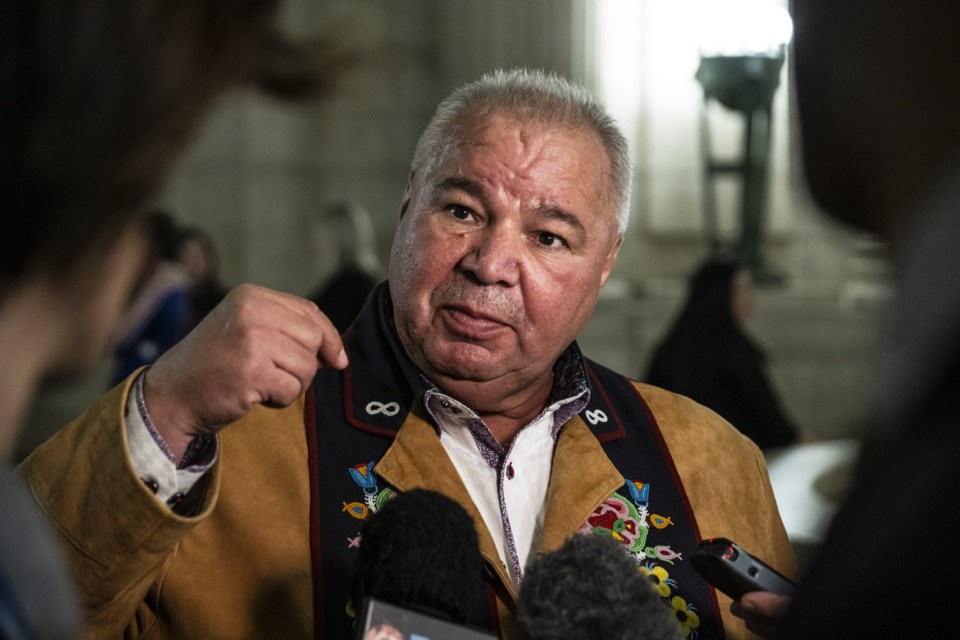WINNIPEG — A recent interaction between a conservation officer and David Chartrand, president of the Manitoba Métis Federation, appears set to become the latest skirmish in the battle over Indigenous hunting and fishing rights in the province.
Chartrand was given a ticket last month for angling without a licence on a lake near the northern community of Cranberry Portage, the government's central communications agency said Friday. Chartrand has until Aug. 14 to respond. Such tickets can carry fines of $298.
Chartrand said he has not been charged with anything, was not breaking the law, and was exercising his right to fish.
"One of the officers was trying to figure out what he had to do, and I think he was not properly briefed," Chartrand said in an interview this week.
"It was more of a warning, I guess, in my view because I had a quick discussion with him to please do his homework."
Chartrand said he later returned to the dock, the conservation officer did as well and they both went their separate ways. He said he will fight any charges in court if need be.
The Manitoba government recognizes MĂ©tis natural resource harvesting rights, which includes the right to fish without a licence, in most of southern, central and western Manitoba, along with a small area in the northwest. The area does not include lakes close to Cranberry Portage.
The federation has called for an expansion to more northern areas, which the province has been considering. Chartrand said MĂ©tis citizens should not face charges "all the way to Churchill," a town on the coast of Hudson Bay in the northeast.
First Nations communities in the north are not on board with that idea. While the Manitoba MĂ©tis Federation says it has historical ties to communities across the north, some First Nations chiefs say treaty rights based on people who were on the land thousands of years ago take precedence.
"We object to the expansion of MĂ©tis harvesting rights in the north and, very importantly, prior to any discussion of lands or harvesting rights with the MĂ©tis, First Nations land claims and other related issues must be resolved," Chief Angela Levasseur of Nisichawayasihk Cree Nation said.
"We are the rights-holders of our lands and our territories, and any government or any other ethnicity must come to us first before they try to do anything," Chief David Monias of Pimicikimak Cree Nation said.
Chartrand said he wants to work with First Nations on what he describes as mutual rights.
"Without doubt, First Nations have rights. I'll never question that, and I hope they don't question me."
Dana Rudy, deputy minister of Economic Development, Investment, Trade and Natural Resources, said a decision was made in late June to back off enforcement against MĂ©tis harvesters in the areas currently being discussed with the federation.
The areas, proposed by the federation in 2016, do not go as far as Churchill but include a stretch of northern Manitoba in and around Cranberry Portage.
"At this point in time, because the discussions are underway, conservation officers are forgoing the enforcement actions in the expanded area," Rudy said.
The NDP government has been dealing with controversy over recent changes to the moose hunt. The government reduced the number of moose hunting licences available to non-Indigenous hunters this year by 75 per cent in some parts of northern Manitoba.
Some First Nations leaders wanted the government to cut further to protect the moose population. The Manitoba Wildlife Federation, which represents licensed hunters and anglers, said the government had no evidence that the moose population was in decline and in need of further restrictions.
This report by The Canadian Press was first published July 19, 2024.
Steve Lambert, The Canadian Press



